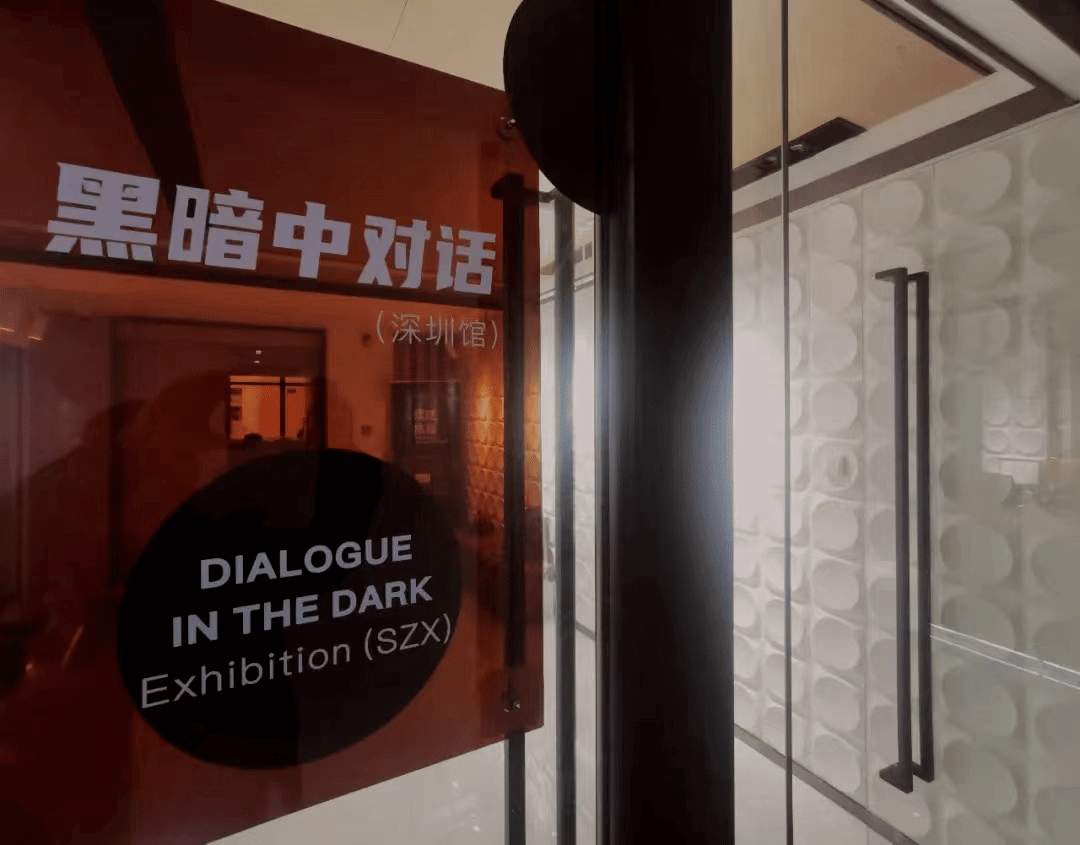After making an appointment, Wang Lei and his friends followed the instructions and slowly walked into a dark room. As the last ray of light disappeared, everything in front of him was shrouded in darkness, and he heard: “Welcome to my voice”.
The voice came from Lingling, the tour guide for their Dialogue in the Dark experience. “Don’t worry,” she assured the group, “there’s no scary part in the venue, so let’s try to relax.”
Dialogue in the Dark (DID) is the main program of Dialogue Social Enterprise, a social enterprise based in Germany. Since its introduction to China in 2010, DID has established its headquarters in Shanghai and opened branches in Chengdu and Shenzhen.
At a DID exhibition, visitors are guided by visually impaired guides in absolute darkness to experience the daily environment of someone with impaired vision. Daily routines become exciting and roles are reversed: the sighted become “blind” and the blind become “sighted”.
Most of DID’s employees are visually impaired, and the organization helps them communicate and interact with people from all walks of life, and more importantly, gives them an equal opportunity to work.

Living in the dark
The 75-minute darkness experience can be torturous for many people, but for Liu Tianhua, the director of DID Shenzhen, and his team, the darkness never ends.
They are ordinary people who live in the darkness and want to have an ordinary life. However, for most visually impaired people, it is never easy to find a job based on their own preferences.
Graduating from Changchun University with a degree in Traditional Chinese Medicine and Tui-Na — a traditional Chinese massage therapy, Liu’s ideal career path was to be assigned to the relevant department of a hospital. But that plan fell through due to a change in state policy by the time he graduated.
With a strong academic record, Liu wanted to study abroad, but some visa issues made that impossible. Feeling powerless and helpless, Liu decided to go to Shenzhen and become a massage therapist, which is the most promising career path for the visually impaired in China.
“There were no other options to choose from,” Liu said. After a few years as a massage therapist, he came into contact with DID by chance. Starting as a part-time teaching assistant, he found a career there and never left.
Constantly improving the product
From being a part-time teaching assistant to becoming the lead curator, Liu witnessed the ups and downs of DID Shenzhen.
To attract visitors, DID Shenzhen highlighted its role as a social enterprise and the social good it did through offering a unique experience. And it used initial launch publicity to try and stand out. But for a long time after opening, the organization had very few customers.
The high rent and poor performance made the whole operations team anxious, and left them wondering about the lack of recognition.
Struggling to make profit, Liu and his team slowed down to observe, reflect and discuss possible solutions. They realized that in a young and pragmatic city like Shenzhen, people may value the product itself more than the idea behind it.
As a result, DID Shenzhen focused on improving its customer experience, upgrading its facilities, paying more attention to corporate customers, expanding visitor numbers, and adapting to the consumption habits of the digital era by launching on several service apps.
Working for fun
Since 2019, the pandemic has hit all industries hard, and DID Shenzhen is no exception. The sharp decline in customer numbers finally led to its closure, and the organization’s staff could only stay at home.
During the closure, Liu and his colleagues started the search for a new location.
After all the hardships involved in dismantling, transporting, installing, and commissioning all their equipment, machinery, and carefully redesigning interior objects, they found that the most challenging issue of all was the commute to their new location, as adapting to new travel routes sometimes takes weeks for a visually impaired person.
However, no member of staff handed in their resignation.
“Most of us came to work here because we like this place — not to hold on to or to overcome anything. We all think it’s fun,” Liu said.
To Liu, the significance of DID Shenzhen’s existence is that it has given him and people like him equal employment opportunities.
“We provide a lot of jobs. Visually impaired people working here will be able to live an ordinary life, to go to work every morning, and then to leave work at the end of the day, to take the subway, things like that,” Liu explained. “Take me as an example, my son doesn’t wonder why his dad is different from others, or why his dad doesn’t go to work.”
As for the future, Liu told CDB, “Most of our staff were already in their 30s and 40s when they came to us, and I am approaching 40. We plan to work here until our retirement.”



